Probiotics
Probiotics: The Ultimate Supplement Guide
This Ultimate Probiotics Supplement Guide is designed to answer all of your questions about probiotic gut bacteria you may find in foods and supplements. The guide contains more than 50 scientific citations from highly reputable medical websites. We dug through heaps of scientific literature so that you don’t have to. If you still have questions or concerns after reading this guide, don’t be a stranger. Contact us or leave a comment below.
Table of Contents
What are Probiotics?
Your body is home to tens of trillions of microorganisms like bacteria and yeasts. Most of them are bacteria in your gut. (1) In fact, there are more of these single-celled organisms in your body than there are cells in your body. On the other hand, because they are smaller than your cells, they make up only a tiny fraction of your body’s weight. (2)
Some strains of bacteria in your body are good for you. Your health depends on having the right balance of good bacteria strains to bad ones. The good strains are called probiotics. The most commonly known probiotics are bacteria, although some yeasts are also considered probiotics. You can change the balance of good to bad bacteria with probiotic-rich foods, beverages, and supplements.
How Do Probiotics Work?
Healthy bacteria are involved in too many of your body’s processes to mention here. You will learn about some of the roles various strains play in the section about the benefits of probiotics. Even the topic of the effects of gut bacteria on the nervous system could fill a few volumes of content. Maybe we can start with that topic, precisely the gut-brain axis. In a nutshell…
The Gut-Brain Axis (GBA)
The gut-brain axis is what links your intestines to your central nervous system (brain and spine). It also involves your endocrine (gland) system and your immune system. Your brain’s cognitive and emotional centers are especially active within the axis. (3)
Your gut bacteria play a major role in this axis. They affect your emotions, memory, and even anxiety levels. In fact, gut bacteria play an important role in the development of your brain. (3)(4) This is why a healthy gut flora balance is essential for a healthy brain. Your gut affects your brain and vice versa. Scientists are increasingly researching the connections between probiotics and a large number of mental and emotional disorders.
Can You Get Your Probiotics From Food?
The best-known sources of probiotics are certain fermented foods and beverages like yogurt, kombucha, and sauerkraut. What most people don’t know is that some fruits and vegetables contain them, too, but in smaller numbers. A cup of yogurt may have a few billion or tens of billions of probiotic organisms of a few bacteria strains. An apple may give you 100 million organisms and a much larger number of strains, assuming you eat the core. (5)
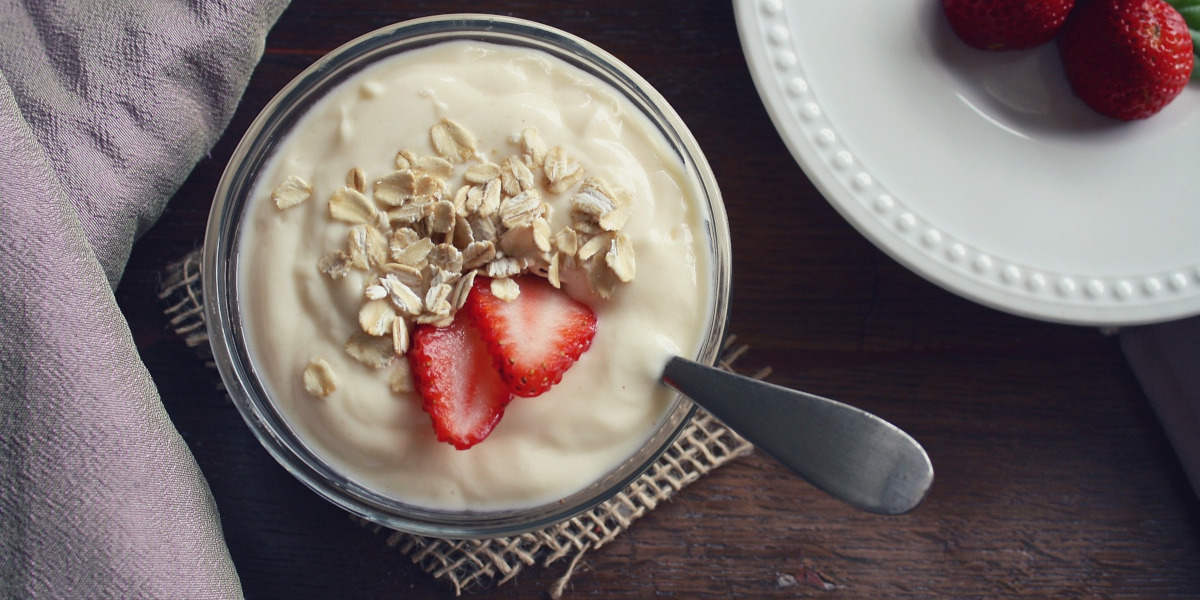 What are the Best Food Sources?
What are the Best Food Sources?
These are some of the most notable probiotic food sources:
- Kefir
- Yogurt
- Miso
- Kimchi
- Sauerkraut
- Kombucha
These are all fermented foods. They contain probiotic bacteria because the fermentation process feeds good bacteria with sugar and starch. This multiplies the good bacteria, destroys the bad bacteria, and creates lactic acid. Lactic acid is a powerful natural preservative. (6)
One serving of yogurt can have a few billion or tens of billions of probiotic organisms. Kefir – the dairy-based probiotic drink – has a larger number of strains and far more CFU’s than yogurt, but only if you make it yourself using starter culture or “grains.” Do-it-yourselfers report more dramatic benefits than those who purchase pre-made kefir in a store.
What are the Benefits of Probiotic Supplements & Probiotic-Rich Foods?
Below is a general list of benefits from common probiotics you will find in supplements and probiotic-rich foods. It’s a very short list compared to the total number of known benefits. Keep in mind that there are roughly 500 known probiotic strains, and some are better at performing specific jobs than others.
Clinical studies are usually hyper-focused on specific groups of probiotic strains like Lactobacillus and Bifidobacterium. This means the benefits list below will also be biased toward these groups. For all-around benefits, choose foods and supplements with a diversity of strains, including those in the Lactobacillus and Bifidobacterium families.
Better yet, look for patented strains with even larger bodies of clinical research – and more predictable effects – like the ones we use in our probiotic supplements. They exist within the Lactobacillus and Bifidobacterium groups and others.
 Probiotics Enhance Absorption of Nutrients & Improve Digestive Health
Probiotics Enhance Absorption of Nutrients & Improve Digestive Health
The research on this is abundant:
- Probiotic bacteria produce short-chain fatty acids in the colon that help with the absorption of iron (7), calcium, and other nutrients. (8)(9)(10)
- Some strains, like Bacillus Coagulans, are great for protein absorption. (11)
- There is ongoing research on using probiotics for problems associated with malnourishment.
- Nutrients are absorbed through your intestines, and this is where most of your probiotics settle and work their magic. (12)
- Probiotics are believed to improve a lot of different digestive functions as well. Research is ongoing and endless. Not all of it is conclusive yet in terms of causes and effects.
Reduce Food Cravings
Bad bacteria may encourage bad eating habits. For example, Lyme Disease bacteria can cause sugar cravings in their human hosts because that’s their favorite food. Bad gut bacteria can induce cravings for sugar, chocolate, and other things that help them grow at the host’s expense. They can also cause cravings for foods that kill off their competitors in the gut. They do this by “hijacking” the gut-brain axis.
Probiotics can suppress harmful bacteria and reduce those cravings. (13)(14) Not only can probiotics reduce cravings by killing bacteria that cause them. They can also change nerve signaling in your favor so that you have fewer and/or healthier cravings.
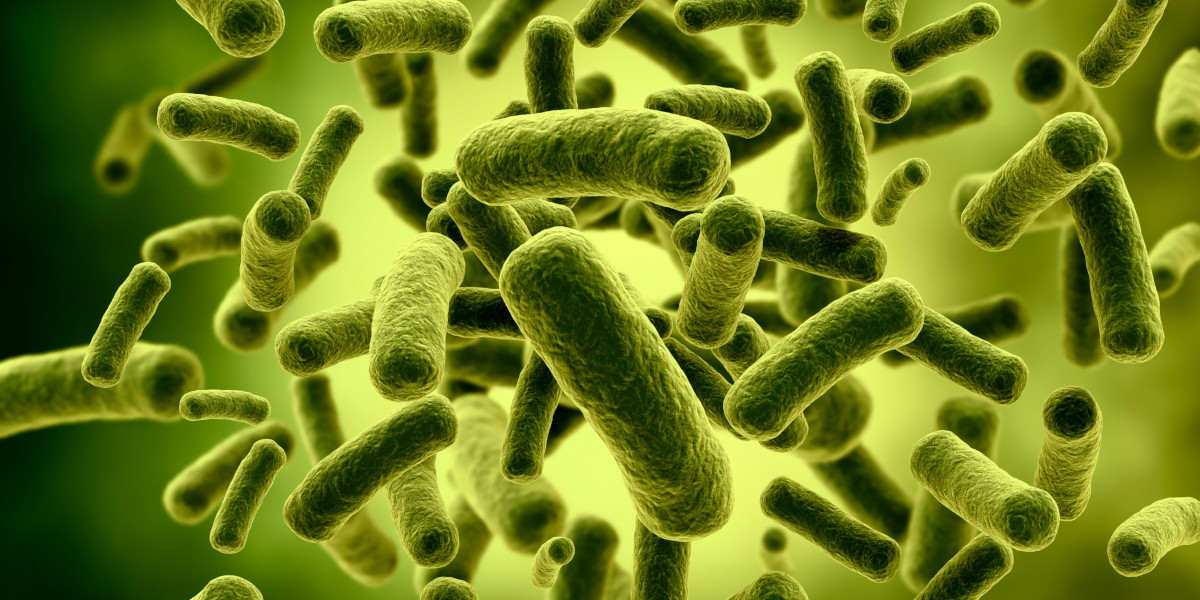
Image credits: Jesper Hilding Klausen – Lactobacillus bacteria
Generate B Vitamins
Certain common strains of probiotics in supplements, yogurt, and kefir can actually create B vitamins like B12 and B9 (folate). They can also create other water-soluble vitamins. The Lactobacillus and Bifidobacterium bacteria groups are particularly noted for their vitamin-generating qualities. (15) However, they may be particularly noted only because these two groups of probiotics are studied far more than others by medical scientists.
Lower Inflammation in the Bowels
Probiotics generally suppress bad bacteria in the gut, and this lowers inflammation. They also produce chemicals that lower inflammation and suppress chemicals that increase it. Many common bowel disorders are inflammation-induced. (16)
Fight Numerous Forms of Inflammation
Chronic inflammation is responsible for countless diseases. Probiotics help reduce and regulate many causes of inflammation. Generally speaking, probiotics help balance the immune system. (17)
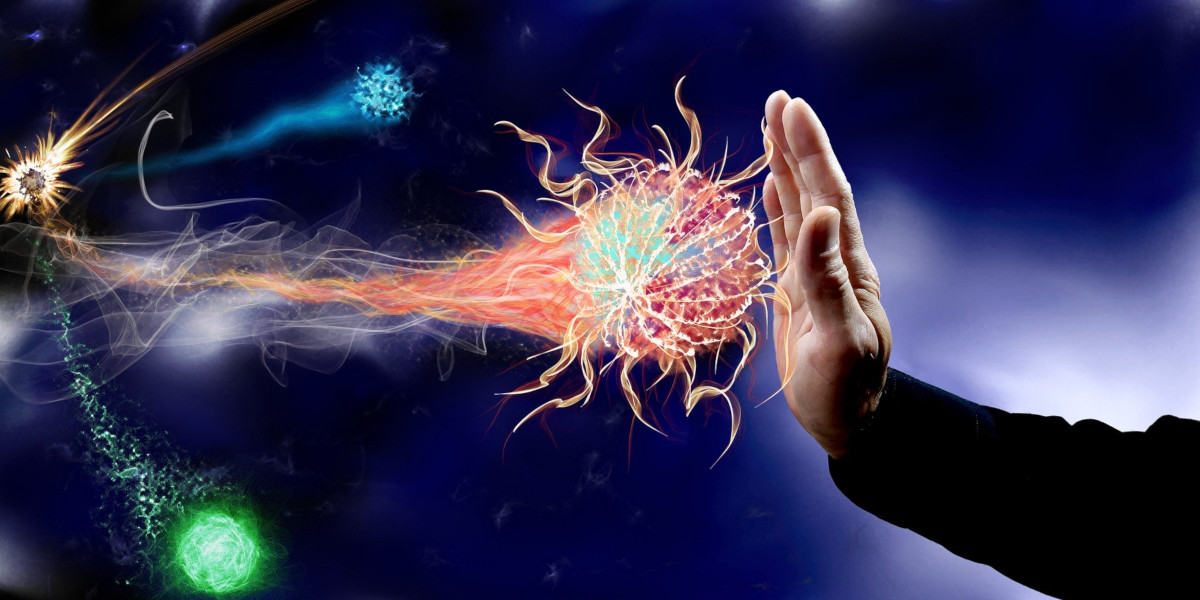 Improve Immunity
Improve Immunity
Probiotics commonly help prevent topical and post-surgery infections and generate chemicals that fight harmful bacteria, fungi, and viruses within the body. They can also dissolve biofilms that harmful germs create to protect themselves from the immune system. (18) At least some strains of probiotics stimulate T-cells, which form an important part of the immune system. (19)
Slow the Skin’s Aging Process
Probiotics are good at slowing aging in multiple systems of the body. This is especially evident in the skin. High probiotic intake is associated with positive changes in skin elasticity, wrinkle depth, and skin moisture levels when compared to placebos. (20)
Probiotics also balance skin pH, reduce oxidative stress from sunlight and other factors, enhance hair quality, and even prevent hair loss. (21) Some skincare companies have even added probiotics to serums and creams.
Increase Tolerance of Insulin
A 2017 analysis of 12 scientific studies led researchers to conclude that supplementing with probiotics brings significant improvement in insulin resistance and the metabolism of fats. They also noted that gut bacteria play a major role in Type 2 Diabetes. (22)
 Help Prevent Travelers’ Diarrhea
Help Prevent Travelers’ Diarrhea
12 million cases of this condition are reported each year by travelers, especially in places where people use feces-contaminated water for cooking and drinking. Staying away from street vendor food and other prevention measures go a long way. In a 2007 review of scientific studies, researchers estimated that 85% of cases can be prevented with probiotic bacteria. (23)
Create a United Front Against Food Poisoning
A 2007 Irish study fed pigs five probiotic strains for six days and then followed this with an oral dose of salmonella. Probiotic doses continued for another 23 days. The probiotics lowered the severity of diarrhea, and it lowered the salmonella bacteria count. (24) A Purdue University study on listeria infection found that probiotics can prevent listeria bacteria from entering the bloodstream through the intestines. (25)
Contribute to Better Moods & Reduce Anxiety
Gut bacteria play a significant role in brain health because of the gut-brain axis. Multiple studies have found positive links between probiotics and the reduction of both anxiety and bad moods. (26) A 2019 review of studies noted a variety of benefits, including improved cognitive and emotional processing and reductions of anxiety and depression symptoms. (27)
As time goes on, we’ll know more about the exact cause and effect mechanisms that help the brain. Don’t take this as medical advice. Talk to your doctor before beginning any treatment program for depression or other mental illnesses.
Aid Sleep
The 2019 review of studies that noted the mood and anxiety benefits also noted improved sleep as an additional benefit. The reviewers speculated that these benefits are all related. (27)
If you have insomnia, keep in mind that many things can cause it. Probiotics could help with some of them, including the most common ones like stress and anxiety. Other causes are more complicated and could be signs of serious illnesses. That’s why it’s important to talk to your doctor and receive proper testing. (28)
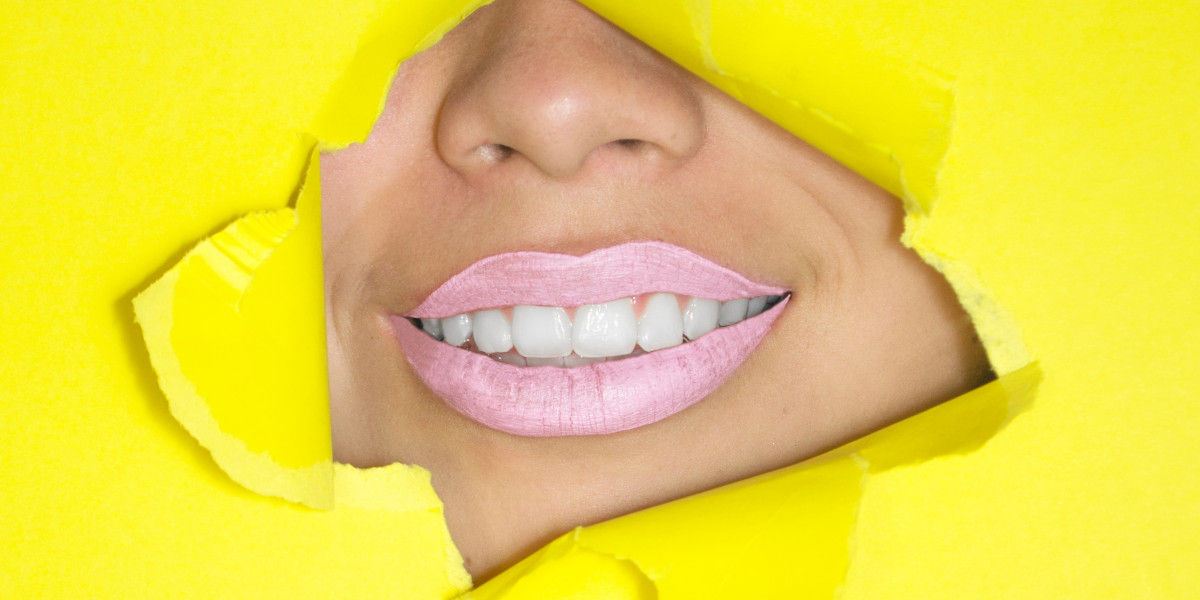 Reduce Dental Plaque & Cavities
Reduce Dental Plaque & Cavities
The most prominent bacteria strain that causes plaque and dental cavities is called mutans streptococci. (29) Some strains of probiotics have demonstrated an ability to inhibit the harmful bacteria in the mouth, including mutans streptococci, and improve oral health. (30)(31)
Ease Reactions to Pollen
University of Florida researchers found – with the help of 173 human subjects – that some probiotic strains can reduce hay fever symptoms if used throughout the allergy season. The probiotic group suffered significantly less than the placebo group. Scientists speculate that one reason could be the stimulation of T-cells, which help regulate the immune system and allergic reactions. (19)
Lower Blood Pressure
A review of nine studies of adults with normal or high blood pressure found that common probiotics found in yogurt and supplements decreased blood pressure. The results weren’t dramatic, and only people who used probiotics for two or more months enjoyed this benefit. More diversity in probiotic strains produced better results. The greatest results occurred in people with high blood pressure. (32)
Reduce Cholesterol Levels
Researchers in 2018 reviewed 32 randomized controlled trials that focused on total cholesterol levels in blood serum. Regular probiotics use lowered cholesterol significantly in humans. (33)
Provide Relief from Constipation
A major 2015 review of clinical trials involving irritable bowel syndrome (IBS) patients showed significant improvements in symptoms. IBS symptoms include constipation, bloating, farting, and abdominal pain. (34)
A 4-week study of pregnant women with constipation demonstrated the power of certain probiotics found in yogurt and other foods to change pooping frequency, poop consistency, and other measures of constipation. (35)
Improve Tolerance to Lactose
Lactose intolerant kefir drinkers don’t need scientists to tell you that they become more dairy-friendly after regular use of this probiotic beverage. A 2019 University of Hawaii review of 15 scientific studies involving a total of eight probiotic strains has confirmed this. Some strains were better at decreasing lactose intolerance than others. (36)
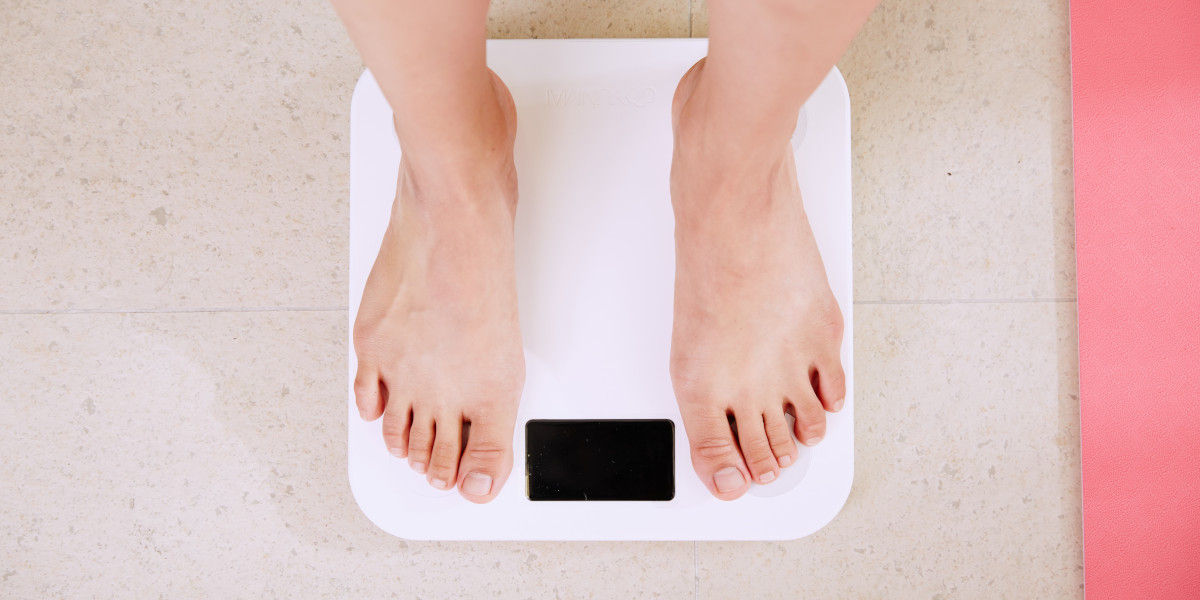 May Aid Weight Loss But…
May Aid Weight Loss But…
This is a controversial issue at the moment because the knowledge base is very nuanced. One study of overweight people saw good results from yogurt. They lost 3%-4% of their body fat in six weeks compared to a control group. Another study of people with excess belly fat led to more than 8% belly fat loss in 12 weeks. This group used the Lactobacillus Gasseri strain in fermented milk, but the fat came back after they stopped taking it. (37)
Some people who are overweight because of poor nutrient absorption may lose weight, depending on the strains. The same goes for many who reduce food cravings with probiotics. Further research on probiotics and weight loss will isolate specific strains and health conditions and give a complete picture. Then, hopefully, the medical science nerds will stop fighting about it in classrooms and on Twitter.
What are the Women-Specific Benefits of Probiotics?
Women typically have more reasons than men to load their guts with probiotics. Doing so may…
Balance Hormones
Lactobacillus probiotic strains have been noted in medical science for their ability to regulate estrogen. One such strain suppressed bone loss caused by estrogen deficiency in mice. (38)(13)
Help Prevent Urinary Tract Infections (UTI’s)
A lot of probiotics research is devoted to vaginal health and infections that affect mostly women. (39) The Lactobacillus group is the most studied in the field of gynecology. These probiotic strains displace harmful bacteria like E. coli.
One study of 50 women drastically reduced relapses of UTI’s during a 10-week period using probiotics. (40)
Regular consumption of probiotic-rich beverages reduced UTI’s in a Finnish study as well. (41)
A 2012 study of 252 postmenopausal women with recurring UTI’s compared Lactobacillus strains to antibiotic drugs. Lactobacillus probiotics were highly effective at preventing UTI’s and did not increase antibiotic resistance like the antibiotics did. (42)
Reminder: This is not medical advice or a substitute for medical advice. Talk to your doctor about diagnosing, treating, and preventing acute or recurring infections.
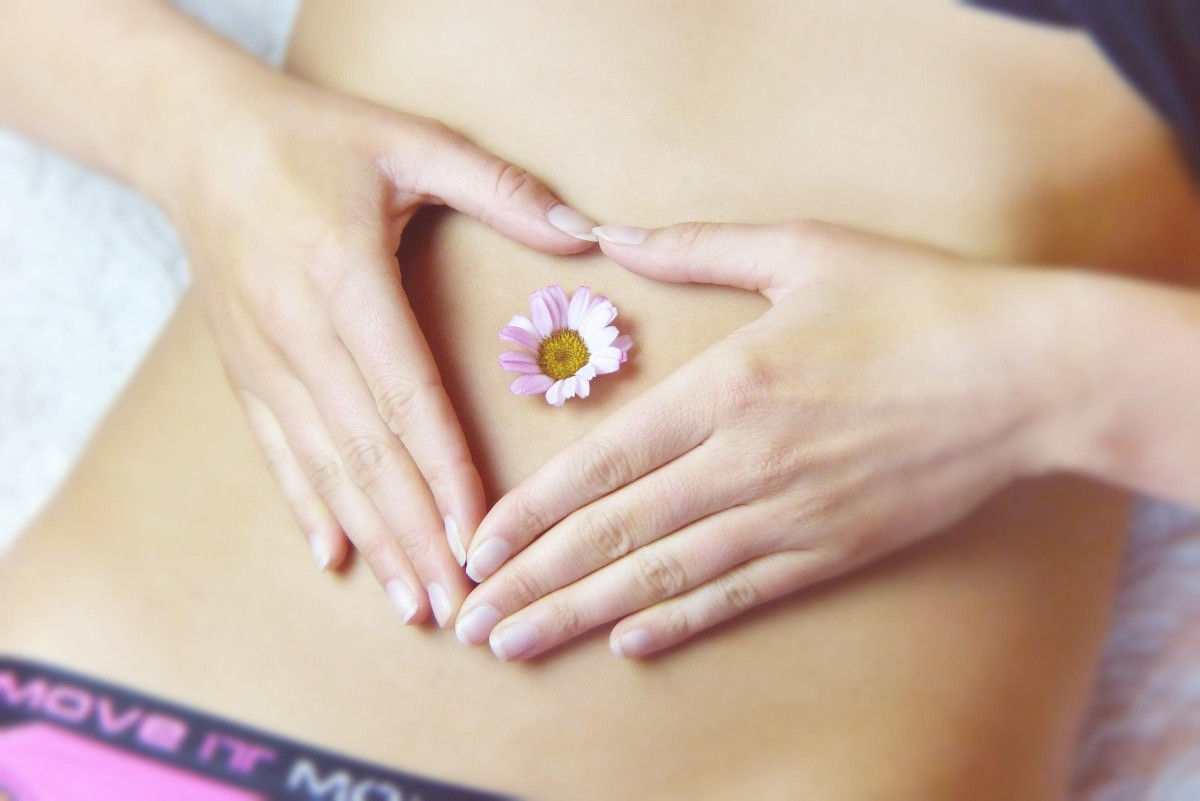 What are Prebiotics & How Do They Work?
What are Prebiotics & How Do They Work?
“Prebiotics” may refer to foods or plant fibers within foods. The fibers cannot be digested, so they hang out in your gut and help healthy bacteria flourish and grow. They also provide numerous other benefits for your gut and your whole body. (43)
Which Prebiotic Foods Should I Eat?
Prebiotic-rich foods include: (43)(44)
- Chicory root
- Onions
- Garlic
- Artichokes
- Berries
- Apples
- Bananas
- Flaxseed
- Burdock root
- Yacon root
- Jicama root
- Dandelion root
- Broccoli
- Most green vegetables
- Wheat
- Beans
- Peas
- Leeks
Also, any food containing high amounts of fiber called inulin is a good prebiotic. Fiber from chicory root is almost half inulin. Leeks are made of 16% inulin fiber. (44) Prebiotics added to baby formulas, breads, cereals, yogurts, and other foods go by names like galactooligosaccharides, fructooligosaccharides, oligofructose, chicory fiber, and inulin. (43)
What Causes a Lack of Good Bacteria in the Gut?
A poor diet lacking a diverse set of fruits, vegetables, prebiotic fibers, and whole grains can lead to a takeover of your gut by bad bacteria. (45) Other things that destroy healthy gut flora balance include: (45)(46)
- Antibiotics
- Excessive alcohol use
- Physical inactivity
- Tobacco smoking
- Sleep deprivation
- Various forms of stress
- Artificial sweeteners
- Too much saturated fat
- Too much red meat
- Some additives in processed foods
Are There Any Side Effects I Should Know About?
Probiotic supplements are generally considered safe. If you’re not used to taking probiotics in the forms of supplements or fermented foods, there is a chance you may experience temporary gas and bloating. You might fart a lot until you get used to the beneficial bacteria. (47)
Some people get diarrhea as well. All of these side effects mean you’re acclimating to a rebalancing of gut bacteria. They typically disappear within a few days. One review of the scientific literature warns, “They should be used cautiously in patients who are critically ill or severely immunocompromised or those with central venous catheters since systemic infections may rarely occur.” In other words, check with your doctor if you have these conditions. (47)
What Should I Look For in a Supplement?
Strength
Strength is usually measured in Colony Forming Units (CFU’s). This is the number of probiotic organisms. You’ll need at least a few billion to ensure that enough of them reach your intestines safely. Standard doses are in the tens of billions. Our 10 Strain Probiotics And Prebiotics With Sunfiber® And FOS guarantees 50 billion CFU’s per serving. However, we pack 150 billion in there just to make sure you get what you’re guaranteed during the entire shelf life.
We also make a probiotic supplement for women’s gut and vaginal health with a guaranteed six billion CFU’s. The children’s supplement also provides a guaranteed six billion CFU’s.
Shelf Life
Not all manufacturers are mindful of shelf life. Exposure to air, light, humidity, and heat can kill more sensitive strains. Some even require refrigeration to survive, even after being freeze-dried. (48) This is why we use the Activ-Polymer™ bottle for probiotics. It features an impenetrable desiccant sleeve wrapped around the probiotics, so they are virtually moisture-free. We also use an Oxyfree® desiccant to absorb oxygen and remove moisture in the bottle.
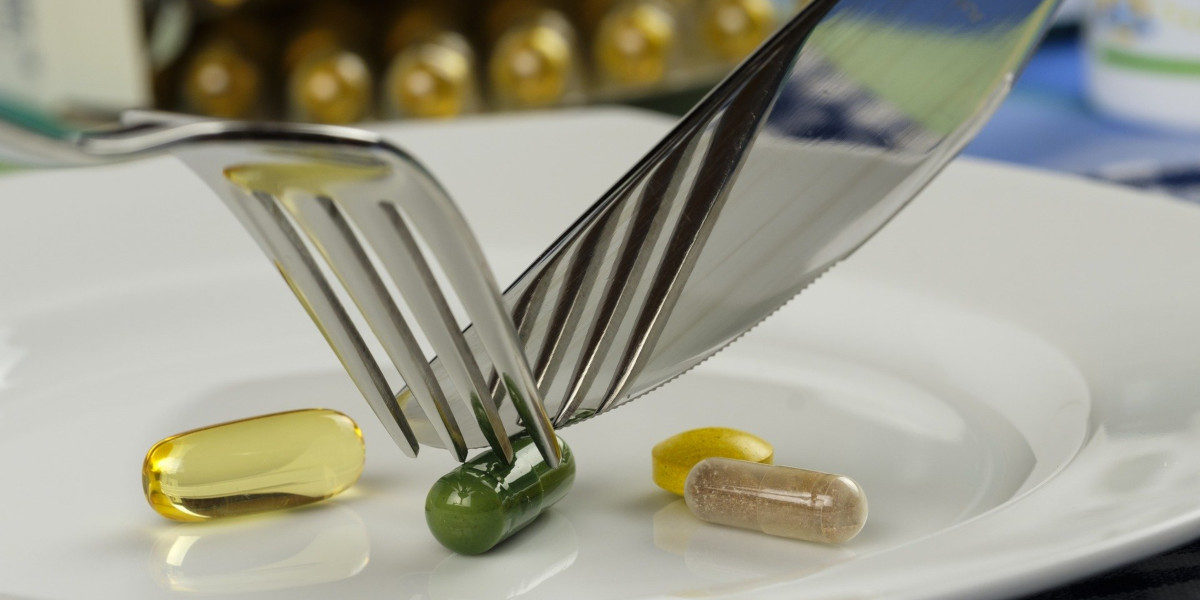 Diversity of Strains
Diversity of Strains
Different probiotic strains have different strengths and weaknesses. Generally speaking (or typing), the more varieties you have in your gut, the more benefits you will receive.
Well-Researched Strains
You already know that most research is done on the Lactobacillus and Bifidobacterium groups of probiotic strains. There are also patented versions of strains within these two families and others. We use 10 DuPont™ Danisco® strains in our adult 10 strain probiotic supplement because of specific proven health benefits and proven stability. They are also acid-resistant and bile-resistant, which means far more of them make it through your stomach and into your gut. They were developed through massive heaps of rigorous research. List of the 10 patented strains:
- Lactobacillus acidophilus La-14®
- Lactobacillus casei Lc-11®
- Lactobacillus paracasei Lpc-37®
- Lactobacillus rhamnosus Lr-32®
- Lactobacillus plantarum Lp-115®
- Lactococcus lactis Ll-23
- Bifidobacterium bifidum Bb-06
- Bifidobacterium breve Bb-03
- Bifidobacterium lactis Bl-04®
- Bifidobacterium longum Bl-05 100B
Added Prebiotic Fiber
Probiotic supplements with prebiotics last longer on the shelves. Even the slightest exposure to light, heat, moisture, or air can cause some of the probiotics to wake up. While awake, they must eat, or they die. They eat prebiotic fiber. That’s why we add patented prebiotics to our probiotic supplements. What we use: SUNFIBER®: https://sunfiber.com/research/
- Encourages the growth of probiotics
- Maintains digestive health, gut flora balance & blood sugar levels
- Promotes absorption of essential minerals like calcium & magnesium from food
Fructooligosaccharides (FOS) Natural Prebiotic Plant Fibers: (49)
- Encourage the growth of probiotics
- Improve digestion
- Relieve inflammatory bowel symptoms like constipation
Delayed Release Capsules
Delayed release capsules ensure your probiotics don’t get destroyed by stomach acid. We use these for an extra layer of protection, even though our strains are already acid-resistant.
Third-Party Lab Testing
Look for “Certificates of Analysis” from reputable third-party labs that perform quality control tests on a regular basis. If a manufacturer doesn’t display one on their website, ask for one. They can produce a PDF for each product if they hire third-party labs. Labs may also certify that manufacturing facilities follow Good Manufacturing Practices (GMP) standards. These standards are recognized by major regulatory agencies for foods and supplements like the U.S. Food and Drug Administration. In some countries, every manufacturing facility must be GMP by law.
When is the Best Time to Take Probiotics?
Morning is a great time to take probiotic supplements, but any time of day is fine. You can take them with or without food. However, probiotics in the popular Lactobacillus and Bifidobacterium groups have the greatest survival rate if you take them 30 minutes before a meal. (50)(51) If you are on antibiotics, take the probiotics at least two hours after them to optimize their effectiveness. (47)
About This Ultimate Supplement Guide
We hope you enjoyed this Ultimate Probiotics Supplement Guide. If you like it, share it with your friends through social media or email if you think they would benefit. Remember that this guide is not a substitute for your doctor’s advice. It’s for informational purposes and not intended to help you self-diagnose, prevent, or treat a specific disease. We don’t have the resources required for diagnostics. Your healthcare provider and medical lab do.
Tracing symptoms to their source(s) is often a very nuanced process, as some illnesses tend to masquerade as other ones, especially if they are multi-systemic. Also keep in mind that science is a process that evolves the medical knowledge base over time. It is not the knowledge base itself. Don’t assume we gave you absolutely everything you will ever need to know. New studies are released all the time. Some even contradict each other, and this leads to even more studies.
💬 Something on your mind? Share your thoughts in the comments. We love hearing from curious minds.
📩 And while you’re here, join our newsletter for more smart stuff (and secret perks)!
References:
1) Sender R, Fuchs S, Milo R. Revised Estimates for the Number of Human and Bacteria Cells in the Body. PLoS Biol. 2016; 14(8): e1002533. https://www.ncbi.nlm.nih.gov/pmc/articles/PMC4991899/
2) Thursby E, Juge N. Introduction to the human gut microbiota. Biochem J. 2017; 474(11): 1823-36. https://www.ncbi.nlm.nih.gov/pmc/articles/PMC5433529/
3) Rege S. The Simplified Guide to the Gut-Brain Axis – How the Gut and The Brain Talk to Each Other. psych SCENE hub. https://psychscenehub.com/psychinsights/the-simplified-guide-to-the-gut-brain-axis/
4) Bagga D, Reichert JL, Koschutnig K, et al. Probiotics drive gut microbiome triggering emotional brain signatures. Gut Microbes. 2018; 9(6): 486-96. https://www.ncbi.nlm.nih.gov/pmc/articles/PMC6287679/
5) Hamblin J. The Best Probiotics. The Atlantic. (August 7, 2019). https://www.theatlantic.com/health/archive/2019/08/probitoic-foods/595687/
6) How to get more probiotics. Health Beat. Harvard Health Publishing. Harvard Medical School. (No date). https://www.health.harvard.edu/staying-healthy/how-to-get-more-probiotics
7) Bouglé D, Vaghefi-Vaezzadeh N, Roland N, et al. Influence of short-chain fatty acids on iron absorption by proximal colon. Scand J Gastroenterol. 2002; 37(9): 1008-11. https://www.ncbi.nlm.nih.gov/pubmed/12374223
8) Claesson MJ, Jeffery IB, Conde S, et al. Gut microbiota composition correlates with diet and health in the elderly. Nature. 2012;488(7410):178-84. https://www.ncbi.nlm.nih.gov/pubmed/22797518/
9) Sheridan PO, Bindels LB, Saulnier DM, et al. Can prebiotics and probiotics improve therapeutic outcomes for undernourished individuals. Gut Microbes. 2014; 5(1): 74-82. https://www.ncbi.nlm.nih.gov/pmc/articles/PMC4049942/
10) Parvaneh K, Jamaluddin R, Karimi G, Erfani R. Effect of probiotics supplementation on bone mineral content and bone mass density. ScientificWorldJournal. 2014; 2014: 595962. https://www.ncbi.nlm.nih.gov/pmc/articles/PMC3920759/
11) Jäger R, Purpura M, Farmer S, Cash HA, Keller D. Probiotic Bacillus coagulans GBI-30, 6086 Improves Protein Absorption and Utilization. Probiotics Antimicrob Proteins. 2018; 10(4): 611-5. https://www.ncbi.nlm.nih.gov/pubmed/29196920
12) Carter A. What’s the Connection Between Probiotics and Digestive Health? Healthline. (Medically Reviewed February 5, 2018). https://www.healthline.com/health/probiotics-and-digestive-health
13) Britton RA, Irwin R, Quach D, et al. Probiotic L. reuteri treatment prevents bone loss in a menopausal ovariectomized mouse model. J Cell Physiol. 2014; 229(11): 1822-30. https://www.ncbi.nlm.nih.gov/pubmed/24677054
14) Alcock J, Maley CC, Aktipis CA. Is eating behavior manipulated by the gastrointestinal microbiota? Evolutionary pressures and potential mechanisms. Bioessays. 2014; 36(10): 940-9. https://www.ncbi.nlm.nih.gov/pubmed/25103109
15) Rossi M, Amaretti A, Raimondi S. Folate production by probiotic bacteria. Nutrients. 2011; 3(1): 118-34. https://www.ncbi.nlm.nih.gov/pmc/articles/PMC3257725/
16) Katz J. The Role of Probiotics in IBD. Gastroenterol Hepatol (N Y). 2006; 2(1): 16-8. https://www.ncbi.nlm.nih.gov/pmc/articles/PMC5307257/
17) Shreiner AB, Kao JY, Young VB. The gut microbiome in health and in disease. Curr Opin Gastroenterol. 2015; 31(1): 69-75. https://www.ncbi.nlm.nih.gov/pmc/articles/PMC4290017/
18) Reid G. Probiotics to prevent the need for, and augment the use of, antibiotics. Can J Infect Dis Med Microbiol. 2006; 17(5): 291-5. https://www.ncbi.nlm.nih.gov/pmc/articles/PMC2095085/
19) Allergies? Probiotic combination may curb your symptoms, new study finds. Press release. Food Science and Human Nutrition Department. Institute of Food and Agricultural Sciences. University of Florida. https://www.sciencedaily.com/releases/2017/03/170301142203.htm
20) Sivamaruthi BS, Kesika P, Chaiyasut C. A REVIEW ON ANTI-AGING PROPERTIES OF PROBIOTICS. Int J App Pharm. 2018; 10(5): 23. https://pdfs.semanticscholar.org/4f76/a0a83406f25be444d9bc22c2c1b828fb3274.pdf
21) Sharma D, Kober M, Bowe W. Anti-Aging Effects of Probiotics. Journal of Drugs in Dermatology. 2016; 15(1). https://jddonline.com/articles/dermatology/S1545961616P0009X/1/
22) Yao K, Zeng L, He Q, Wang W, Lei J, Zou X. Effect of Probiotics on Glucose and Lipid Metabolism in Type 2 Diabetes Mellitus: A Meta-Analysis of 12 Randomized Controlled Trials. Med Sci Monit. 2017; 23: 3044-53. https://www.ncbi.nlm.nih.gov/pmc/articles/PMC5491138/
23) McFarland LV. Meta-analysis of probiotics for the prevention of traveler’s diarrhea. Travel Med Infect Dis. 2007; 5(2): 97-105. https://www.ncbi.nlm.nih.gov/pubmed/17298915
24) Casey PG, Gardiner GE, Casey G, et al. A five-strain probiotic combination reduces pathogen shedding and alleviates disease signs in pigs challenged with Salmonella enterica Serovar Typhimurium. Appl Environ Microbiol. 2007; 73(6): 1858-63. https://www.ncbi.nlm.nih.gov/pubmed/17261517
25) Pill some day may prevent serious foodborne illness, scientist says. University News Service. Purdue University. (January 9, 2012). https://www.purdue.edu/newsroom/research/2012/120109BhuniaProbiotics.html
26)Slyepchenko A, Carvalho AF, Cha DS, Kasper S, McIntyre RS. Gut emotions – mechanisms of action of probiotics as novel therapeutic targets for depression and anxiety disorders. CNS Neurol Disord Drug Targets. 2014; 13(10): 1770-86. https://www.ncbi.nlm.nih.gov/pubmed/25470391
27) Marotta A, Sarno E, Del Casale A, et al. Effects of Probiotics on Cognitive Reactivity, Mood, and Sleep Quality. Front Psychiatry. 2019; 10: 164. https://www.ncbi.nlm.nih.gov/pmc/articles/PMC6445894/
28) What Causes Insomnia? Reference article. National Sleep Foundation. (No date). https://www.sleepfoundation.org/insomnia/what-causes-insomnia
29) Forssten SD, Björklund M, Ouwehand AC. Streptococcus mutans, caries and simulation models. Nutrients. 2010; 2(3): 290-8. https://www.ncbi.nlm.nih.gov/pmc/articles/PMC3257652/
30) Söderling E. Probiotics and dental caries Microbial Ecology in Health & Disease. 2012; 23(0). https://www.ncbi.nlm.nih.gov/pmc/articles/PMC3747770/
31) Allaker RP, Stephen AS. Use of Probiotics and Oral Health. Curr Oral Health Rep. 2017; 4(4): 309-18. https://www.ncbi.nlm.nih.gov/pmc/articles/PMC5688201/
32) Preidt R. Could Probiotics Help Tame High Blood Pressure? WebMD (from HealthDay News). (July 21, 2014). https://www.webmd.com/hypertension-high-blood-pressure/news/20140721/could-probiotics-help-tame-high-blood-pressure#1
33) Wang L, Guo MJ, Gao Q, et al. The effects of probiotics on total cholesterol: A meta-analysis of randomized controlled trials. Medicine. 2018; 97(5): e9679. https://www.ncbi.nlm.nih.gov/pmc/articles/PMC5805418/
34) Didari T, Mozaffari S, Nikfar S, Abdollahi M. Effectiveness of probiotics in irritable bowel syndrome: Updated systematic review with meta-analysis. World Journal of Gastroenterology. 2015; 21(10): 3072-84. https://www.ncbi.nlm.nih.gov/pmc/articles/PMC4356930/
35) de Milliano I, Tabbers MM, van der Post JA, Benninga MA. Is a multispecies probiotic mixture effective in constipation during pregnancy? ‘A pilot study’. Nutr J. 2012; 11:80. https://www.ncbi.nlm.nih.gov/pmc/articles/PMC3502183/
36) Oak SJ, Jha R. The effects of probiotics in lactose intolerance: A systematic review. Crit Rev Food Sci Nutr. 2019; 59(11): 1675-83. https://www.ncbi.nlm.nih.gov/pubmed/29425071
37) Johnson J. Can probiotics help you lose weight? Medical News Today. (Medically Reviewed May 24, 2019). https://www.medicalnewstoday.com/articles/325291.php#can-probiotics-help-you-lose-weight
38) Guo Y, Qi Y, Yang X, et al. Association between Polycystic Ovary Syndrome and Gut Microbiota. PLoS ONE. 2016; 11(4): e0153196. https://www.ncbi.nlm.nih.gov/pubmed/27093642
39) Reid G. The development of probiotics for women’s health. Can J Microbiol. 2017; 63(4): 269-77. https://www.ncbi.nlm.nih.gov/pubmed/28177795
40) Chan A. Probiotics Could Help Prevent Urinary Tract Infections. LIVESCIENCE. (April 15, 2011). https://www.livescience.com/13747-good-bacteria-prevent-urinary-tract-infection.html
41) Kontiokari T, Laitinen J, Järvi L, Pokka T, Sundqvist K, Uhari M. Dietary factors protecting women from urinary tract infection. Am J Clin Nutr. 2003; 77(3): 600-4. https://www.ncbi.nlm.nih.gov/pubmed/12600849
42) Beerepoot MA, ter Riet G, Nys S, et al. Lactobacilli vs antibiotics to prevent urinary tract infections: a randomized, double-blind, noninferiority trial in postmenopausal women. Arch Intern Med. 2012; 172(9): 704-12. https://www.ncbi.nlm.nih.gov/pubmed/22782199
43) What Are Prebiotics? Reference article. WebMD. (No date). https://www.webmd.com/digestive-disorders/prebiotics-overview
44) Semeco A. The 19 Best Prebiotic Foods You Should Eat. Nutrition: Evidence-Based. HealthLine. (June 8, 2016). https://www.healthline.com/nutrition/19-best-prebiotic-foods
45) Coyle D. 8 Surprising Things That Harm Your Gut Bacteria. Nutrition: Evidence-Based. HealthLine. (June 19, 2017). https://www.healthline.com/nutrition/8-things-that-harm-gut-bacteria
46) Sharp A. The Best (and Worst) Foods for Your Gut. Rally. (September 24, 2018). https://www.rallyhealth.com/food/the-best-and-worst-foods-for-your-gut
47) Williams NT. Probiotics. Am J Health Syst Pharm. 2010; 67(6): 449-58. https://www.ncbi.nlm.nih.gov/pubmed/20208051
48) Degradation of vitamins, probiotics and other active ingredients caused by exposure to heat, water and sunlight. Nutraceutical Business Review. (August 7, 2018). https://www.nutraceuticalbusinessreview.com/news/article_page/Degradation_of_vitamins_probiotics_and_other_active_ingredients_caused_by_exposure_to_heat_water_and_sunlight/145924
49) Sabater-Molina M, Larqué E, Torrella F, Zamora S. Dietary fructooligosaccharides and potential benefits on health. J Physiol Biochem. 2009; 65(3): 315-28. https://www.ncbi.nlm.nih.gov/pubmed/20119826
50) Tompkins TA, Mainville I, Arcand Y. The impact of meals on a probiotic during transit through a model of the human upper gastrointestinal tract. Benef Microbes. 2011; 2(4): 295-303. https://www.ncbi.nlm.nih.gov/pubmed/22146689
51) Danahy A. When’s the Best Time to Take Probiotics?. Nutrition: Evidence-Based. HealthLine. (October 14, 2019). https://www.healthline.com/nutrition/best-time-to-take-probiotics






This guide is incredibly thorough—thank you! I’ve read quite a few articles on probiotics, but this is one of the few that actually explains the science in a way that makes sense. I really liked the part on how different strains serve different functions, especially for things like immunity, digestion, and even skin support. It’s easy to get overwhelmed with so many supplement options out there, but having a checklist like this (with CFUs, strain diversity, and delivery method) makes it way easier to compare. I’ve recently been exploring multi-strain probiotics that also support skin health, and this gave me a much better framework for evaluating what’s out there. Appreciate the detail!
We appreciate your feedback, Eric! Thanks so much!